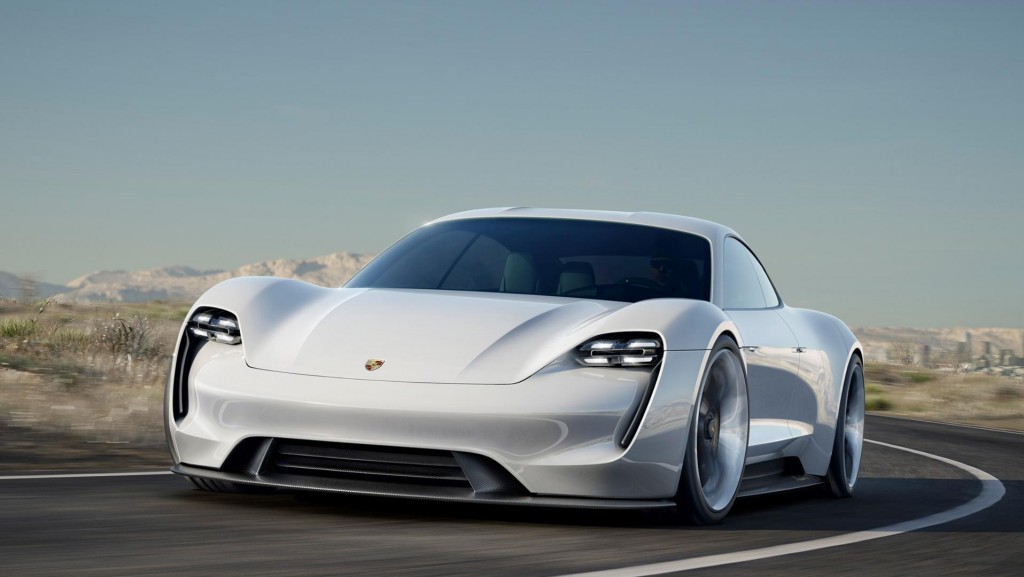Taking a page from its successful Cayenne and Panamera E-Hybrids, which have seen the biggest sales jumps of any plug-in cars in recent monthly sales reports, Porsche is planning to build two new hybrid versions of its defining 911 sports car.
The 911 is being redesigned for 2019, code named 992, and experts expected that it would offer a range-topping hybrid variant. Now British car magazine Auto Express has confirmed that the next 911 will offer two hybrid variants—not one—and that they will plug in.
The top-of-the-line version, perhaps to be called the 911 Turbo S E-Hybrid in line with the rest of Porsche's range, is expected to deliver 700 horsepower from a twin-turbocharged version of Porsche's traditional flat-6 engine, driving the rear wheels through a 7-speed dual-clutch gearbox. The front axle would be powered by an electric motor, with no mechanical connection to the rear wheels.
READ THIS: Plug-in electric car sales for April: Leaf sales lag, spendy Porsches take off
Porsche engineers told Auto Express that this setup gives them flexibility in tuning the 911's handling using the electric all-wheel-drive system.
A lower powered version of the same setup is expected to accelerate from 0-60 in less than 4 seconds, and be rated at more than 80 MPGe in Europe. It would sit in the middle of the 911 lineup.
These will be the first hybrid versions of the 911, since Porsche engineers have been reluctant to add the weight of a plug-in battery to the company's lightweight sports car. The battery is reported to weigh 550 pounds. There was no word on its range or battery capacity. The new 911 has been designed from the beginning to accommodate the new plug-in hybrid battery and systems.

Porsche Mission E concept electric car
The new 911s will also have a new flush-mounted center touchscreen and mostly digital instruments, in a departure from past models.
The 911 E-Hybrid could lay the groundwork to prepare Porsche's traditional sports car buyers for an electrified future, when the company introduces its all-electric Mission E sedan. Porsche expects its worldwide sales to consist 25 percent of electric cars, 25 percent hybrids, and 50 percent conventional gas cars by 2025.
Almost 40 percent of Porsche's U.S. Cayenne sales for April were the new E-Hybrid, and 75 percent of the company's Panamera sales in Britain are hybrids, according to Auto Express.












